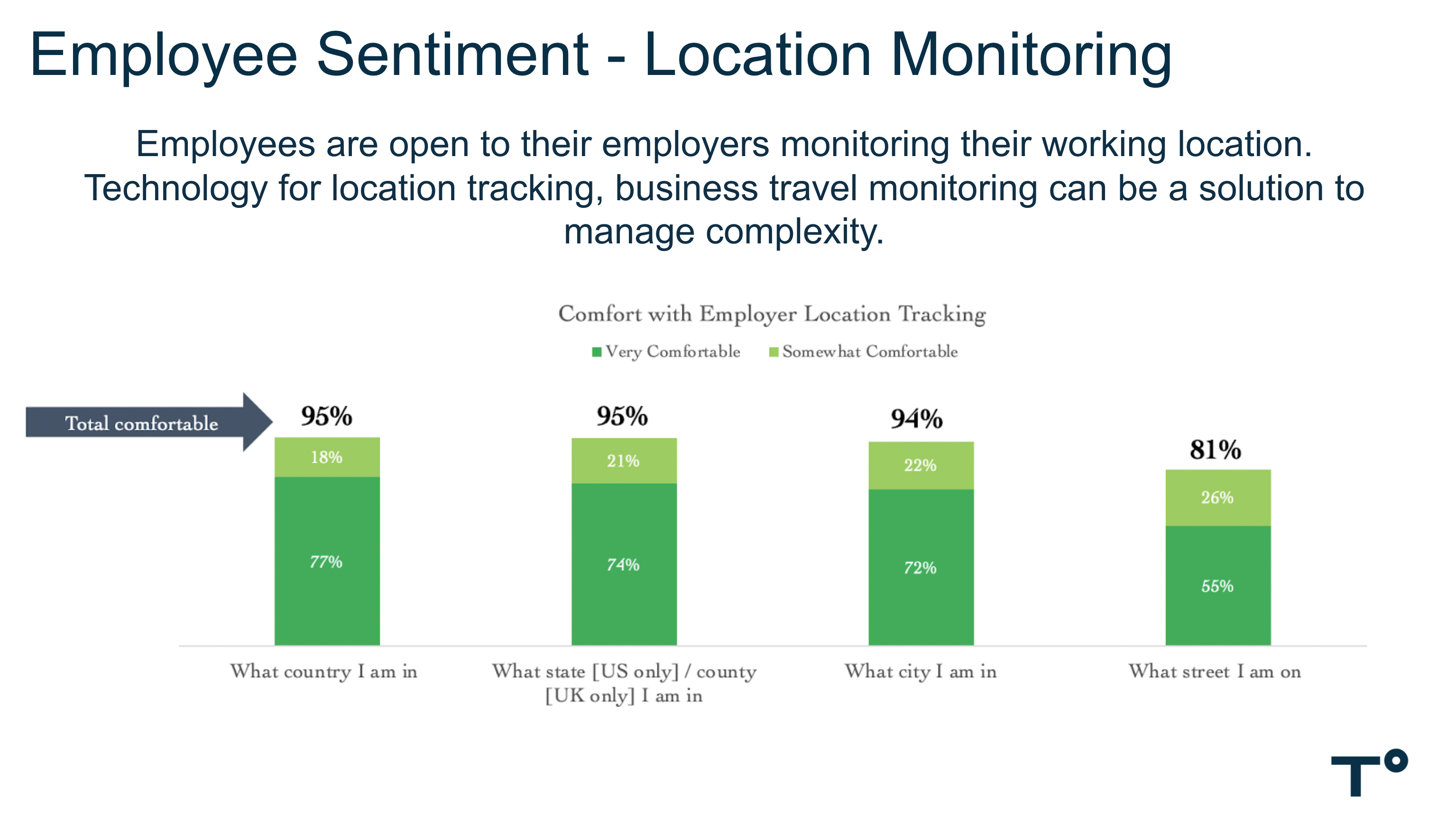
Global Talent Mobility & The Flexible Workforce
This is a guest blog post by David Perring, Director of Research, Fosway Group.
How to balance flexibility and risk to become an irresistible place to work.
Remote working remains popular for workers despite some companies trying to tempt them back into the office. As many as eight in 10 companies1 accelerated the adoption of flexible working because of the impact of the pandemic, and workers have not been universally keen to return to full time, onsite work patterns, if their roles allow it. With nearly two in three organisations expecting their office workers to be onsite only one or two days a week2, the expectations of organisations and employees of where work happens, at least for non-frontline workers, have changed forever. It’s a sensitive issue, with three in 10 people3 viewing a lack of flexible working as a reason to change jobs - in professional groups, that figure can soar to as many as seven in 104.
So, it’s not unsurprising that in the war to attract and retain talent most HR professionals (84%) say that flexible working is a key part of their talent attraction and retention strategies and that the vast majority (85%) expect remote working requests to increase this year. Many have moved to a trust-based approach that sees people working from home full time or choosing when they join their team in the office.
This all makes great sense in the war for talent. But as Topia’s recent research5 highlights, greater flexibility and trust also bring with them greater risks that can create problems if not managed properly.
For example, working in a different country has implications for tax, visas and other regulatory compliance as well as the impact on the business of people working in different jurisdictions and time zones.
Most employers seem to be relying on a trust-based approach around these issues, with 90% of HR professionals believing employees will report all the days spent working outside of their specified country or state. But ignorance, as the saying goes, is bliss. In reality, as few as 33% of workers actually accurately report where they were6. This can have serious implications for tax costs, trading entity status, and visa compliance – all of which can create real problems for the business and the remote worker.
It’s this reality that is driving a more modern, intelligence-led and effective approach to global mobility. Rather than simply managing global employee redeployments and relocations, this approach brings policy transparency and enables the flexible working that genuinely powers high performing organisations, without drowning the HR team with compliance paperwork, time and location tracking and policy compliant manual remote work requests.
For a significant proportion of HR teams, it looks like their answer is to duck the opportunity. Recent research shows that close to half of organisations have adopted policies that make it easy to say no to remote working7.
Those that are seizing the opportunity are personalising the employee experience and getting the edge with keeping and attracting talent. Their policies and remote working management are empowering their workforce to work more flexibly. They are setting the quality bar around the employee experience, even though it does take the right communication tracking, data and reporting to do so.
The key enabler here is not just the thought leadership around genuine mobility, but the supporting technology that intuitively surfaces the policy, shares validated opportunities based on the individual (ie nationality and residency rights) and automates many of the steps of administrating mobility.
Sadly, from our independent solution analysis at Fosway, most HR systems are not yet mature enough in enabling this part of the employee experience. In our profiling of 30 different Core HR solutions in 20228, the weakness of Core HR solutions to enable true global mobility and flexibility becomes clear. Put simply, Core HR systems often don’t have the specialist functionality to power the opportunity of rich remote working.
To do so requires a delicate balancing act, one that balances:
- The flexibility individual workers believe remote work policies should deliver
- HR leaders’ need to set manageable expectations
- The need for employees to accurately capture the time they spend away from their home
- Being sustainable to administer.
Our research shows that this approach does not exist with any fidelity outside of specialist solutions.
This leaves organisations with two fundamental choices for effectively enabling remote working. First, lock down remote working to mitigate risk because their HR solutions can’t truly communicate, track and report it – risking employee churn. Second, work with a specialist mobility partner that can proactively communicate remote working options, approve remote working requests, report compliance and enable a rich talent-enabled culture in which you don’t have to risk unexpected tax bills, or breach local trading entity laws.
Given the current shortages of talent, it’s not much of a choice.
1. HR Realities 2021, Fosway Group
2. HR Realities 2021, Fosway Group
4. Global Hiring Realities: What Do Professionals Value Most From Employers, Morgan McKinley
8. Fosway 9-Grid™ for Cloud HR
© Copyright Fosway Group Limited. All Rights Reserved
www.Fosway.com

